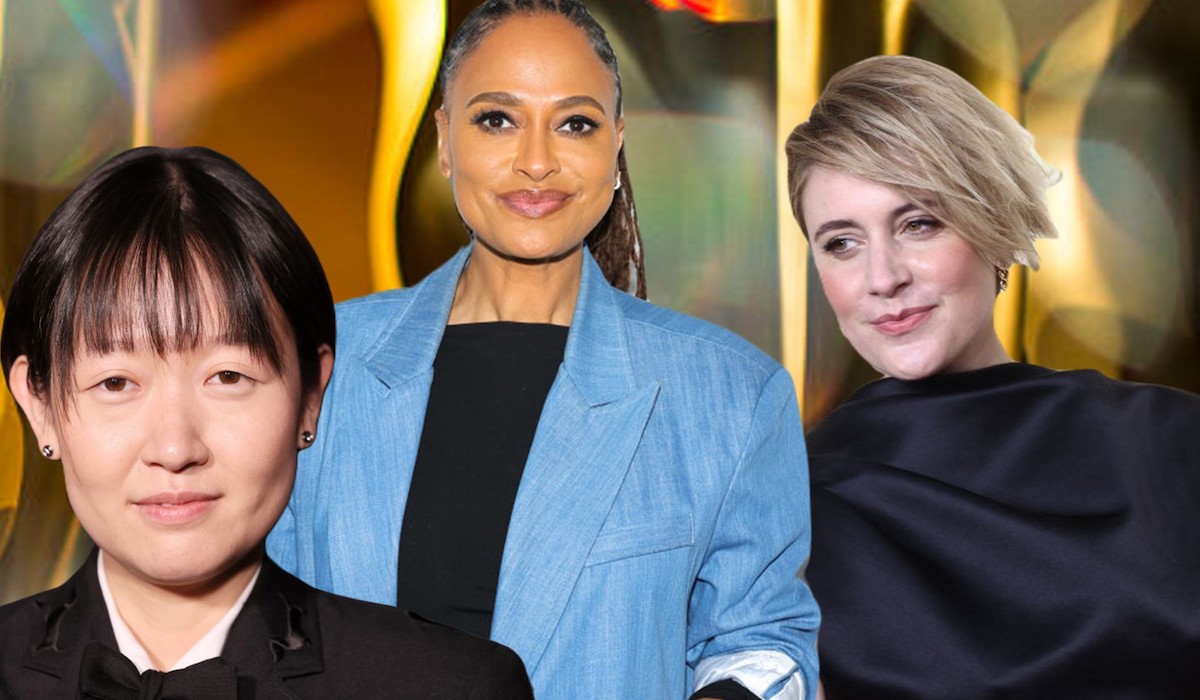Surprising No One, Female Directors Are Nearly Entirely Excluded From This Year’s Oscar Noms

It’s the time of year when every marginalized entertainment reporter gets mad, and because I’m tired of explaining this at parties, it’s for a good reason—representation in entertainment matters. Yet, once again, just one woman is in the directing category.
This year, Oppenheimer, directed by Christopher Nolan, leads the 2024 Oscar nominations with 13 nominations. It’s followed by Poor Things, directed by Yorgos Lanthimos, with 11 nominations, Martin Scorsese’s Killers of the Flower Moon with 10, and Greta Gerwig’s Barbie with eight.
All four films will compete for Best Picture in 2024, alongside American Fiction (dir. Cord Jefferson), Anatomy of a Fall (dir. Justine Triet), The Holdovers (dir. Alexander Payne), Maestro (dir. Bradley Cooper), Past Lives (dir. Celine Song), and The Zone of Interest (dir. Jonathan Glazer). Among the 10 films nominated in the category, only three are directed by women, and only one of them is a woman of color. (Song is a South Korean-Canadian director.)
Furthermore, one of the films nominated for Best Picture is directed by Payne, who has been accused of sexual misconduct with a minor. In 2020, Rose McGowan accused The Holdovers director, Payne, of statutory rape and showing her soft-core porn when she was 15. However, the director denied McGowan’s allegations in a guest column for Deadline, saying: “Rose is mistaken in saying we met when she was fifteen, in the late 1980s. I was a full-time film student at UCLA from 1984 until 1990, and I know that our paths never crossed.” McGowan is not the only woman to have accused Payne of abuse.
The Academy’s new rules
The 2024 Academy Awards are the first in which films must meet two of four representation and inclusion standards to be eligible for Best Picture. The Academy of Motion Picture Arts and Sciences’ Representation and Inclusion Standards “are designed to encourage equitable representation on and off screen to better reflect the diverse global population.”
Well, this sounds good on paper. In reality, the standards are worthless and can be met by recruiting marginalized film crew in underpaid positions. Seriously, a film can meet the Academy’s “representation and inclusion” standards by hiring “at least one” lead or significant supporting actor from an underrepresented racial or ethnic group, having 30% of the crew or ensemble cast from “at least two underrepresented groups”—which includes women, racial and ethnic minorities, LGBTQIA+, and people with disabilities—and having the film’s distribution and financing company offer “paid apprenticeship and internship opportunities,” among other options for qualification.
Since only two of four criteria must be met for a film to qualify under these standards, a film with only one significant supporting actor from a non-white background could qualify as inclusive. Furthermore, since a project can meet the Academy’s new standards merely if the “theme or narrative of the film is centered on an underrepresented group(s),” I wonder if there is even a need for any people of color on staff to qualify. And wow, that’s a low bar that doesn’t address the representation complaints plaguing the Oscars. Indeed, it seems to me that under the new standards controversial Best Picture winners like 2018’s The Green Book, which featured a white character, played by Viggo Mortensen, as the main protagonist in a film about discrimination against Black people, would still qualify.
Perhaps this lack of commitment to actual representation both on-screen and off (if they cared, these standards would apply to more categories than just Best Picture) is why the Academy still managed to snub many of the year’s best female directors.
Who was snubbed this year?
Going into this morning’s Oscar nominations announcements, many critics expected to see Barbie director Gerwig, who’s responsible for making Warner Bros. profitable again (I kid, but only kind of), with a critically praised summer blockbuster about a woman (unfortunately, said woman, Barbie actress Margot Robbie was also snubbed in the Best Leading Actress category, while her co-star Ryan Gosling was nominated for Best Leading Actor as Ken), get a nomination in the Best Directing category.
“Unfortunately, many will likely point to Justine Triet (Anatomy of a Fall) for taking Gerwig’s spot, but let’s not pit two great female directors against one another,” the AP’s Lindsey Bahr wrote following the announcements. “If it’s any consolation to Gerwig, last year’s blockbuster directors were also shut out of this category – neither James Cameron (Avatar: The Way of Water) nor Joseph Kosinski (Top Gun: Maverick) made it in.”
Furthermore, the Academy continues to overlook women of color. Even with her years of service to the Academy, fellow members completely ignored Ava DuVernay’s Origin, continuing the Oscars’ abysmal track record with Black female directors. Remember, in 2023, Gina Prince-Bythewood’s The Woman King was also shut out of consideration. DuVernay’s Selma in 2014 remains the only Best Picture nominee directed by a Black woman. (She was, of course, not included in the nominees for Best Directing.) Along those lines, for another year, Halle Berry will continue to be the only Black woman ever to win Best Actress, as The Color Purple’s Fantasia Barrino also missed out on a nomination.
While Past Lives was nominated in the Best Picture category, its director, Song, was snubbed as a director. Although Asian representation in film has improved in recent years, it was only in 2021 that Chloé Zhao became the first Asian woman to win Best Director for her work on Nomadland.
(featured image: Rodin Eckenroth / Arturo Holmes /
Tommaso Boddi/Golden Globes 2024 / Christopher Polk / Getty Images/TMS)
Have a tip we should know? tips@themarysue.com